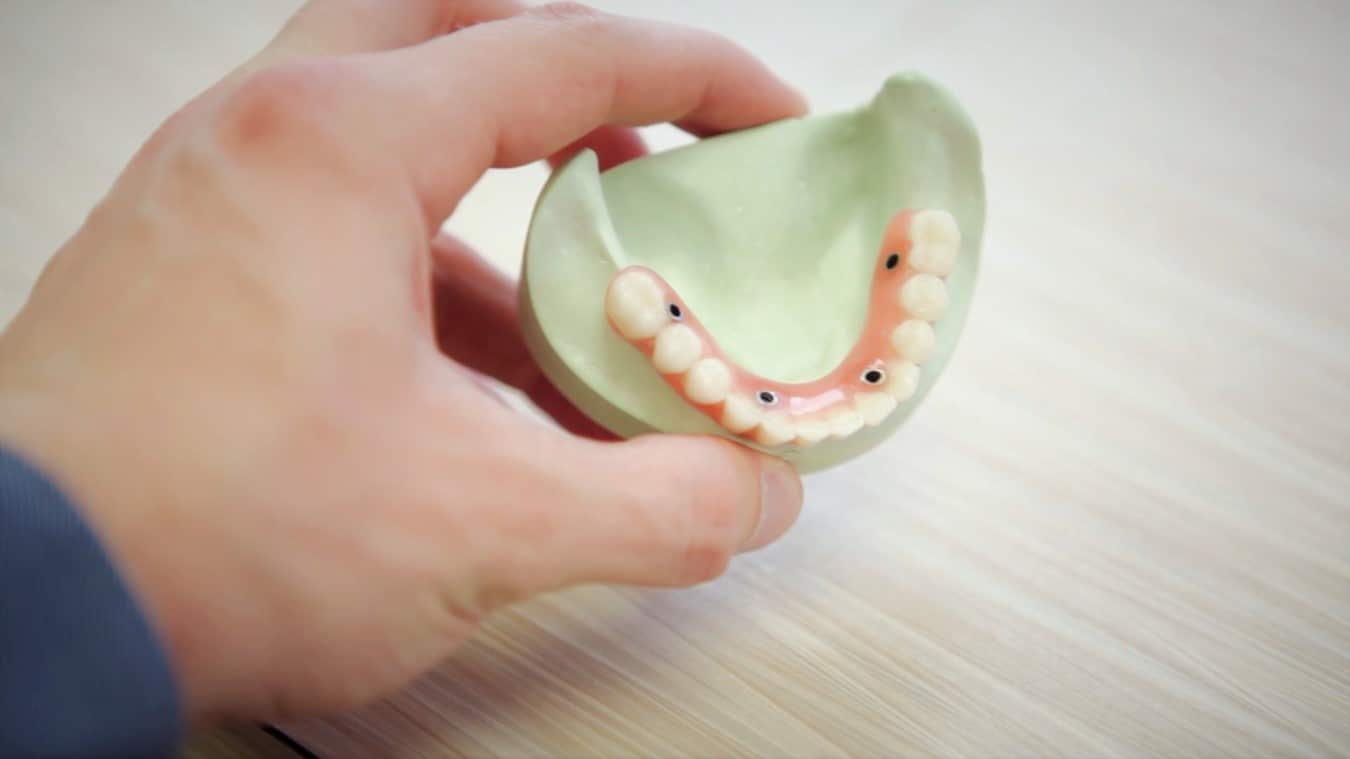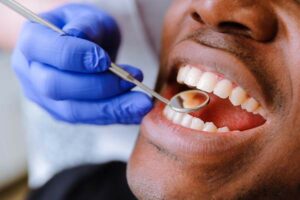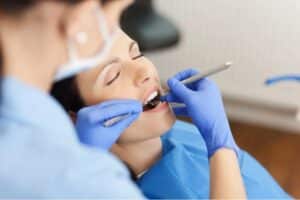If you suspect most or all your teeth are unsalvageable or that they will soon reach this condition, you are probably considering restoring your teeth with an All-on-4. This procedure has gained popularity during the last decade due to its efficiency to permanently replace an entire edentulous arch. Traditionally, treatment plans would consider using at least eight dental implants and three fixed zirconium bridges for this kind of rehabilitation. Thankfully, technology now permits a more economical, lightweight, and esthetic solution with implant-supported dentures that require 4-6 dental implants, less bone grafts, and more predictable outcomes.
Many types of implant-supported dentures are marketed daily as an easy, almost instant option, but what makes them different from each other? More importantly, what determines their quality? We understand this will represent a considerable cost, so we would like to offer some insight.
The Dental Surgery
Most patients are so intent on the results that they forget to think about the steps. The very first of these is the surgery. 95% of patients must undergo multiple extractions before they can even consider the procedure. Many dental clinics in Costa Rica and abroad include these in the cost of the entire procedure. The surgery is often performed by a professional different from the dentist who will actually work on the rehabilitation, but they should work conjointly. The oral surgeon should be aware of what your treatment is and must plan accordingly. He should work with a 3D scan and a surgical guide in order to ensure the position and angulation of the dental implants is ideal. This is important because it will not only increase the predictability of the dental surgery but will also map the layout of chewing forces in the final rehabilitation.
Dental implants need a certain quality and density of bone structure for success. Your oral surgeon should ascertain whether these are acceptable in your case or if you require any type of bone augmentation. Note that although all-on-4s diminish the need for bone grafts they may not altogether suppress it.
The dental surgery is a vital part of the procedure because it is akin to its foundation. Trust an offer that gives it sufficient importance and thought.

The Dental Implants
The variety of dental implants available is sometimes overwhelming. There are two main types of implants, endosteal and subperiosteal. The first are drilled into hard bone and the latter hold on to gum and the superficial parts of the bone. A high quality implant-supported denture will use endosteal implants of enough diameter to provide support to the whole denture. The entire success of the procedure lies on the even distribution of mechanical forces created when you chew. If there is not enough support in a segment of the denture, it will surely fracture over time. Also, undue pressure on the implants due to their reduced dimensions will elevate the risk of implant failure.
Trust a proposal that prefers the use of implants whose brands offer the best technology to aid in integration and whose bodies (length and width) provide vigorous support.
The Restoration
There are many materials available to the final restoration that accommodate to all budgets and expectations. Here are a few.
- Zirconium: These restorations use long, multiple-unit zirconium bridges. Although these are highly esthetic, they are known for their rigidity and weight. They are typically not the most economical or fracture-resistant over the course of the years.
- Plastic: This material is the most competitive when comparing dental prices. It is flexible and resistant to fracture, though it is not as esthetic as other materials. It will also present wear quickly.
- Acrylic: This material resembles that of regular dentures, but it is generally supported with a titanium bar that connects to your implants. It is lightweight, flexible, and comfortable. However, acrylic will wear over time, and like dentures, they will need adjustments and touch ups. Its esthetic qualities are usually acceptable. This is the most common material available in all-on-4 treatments.
- Crystal Ultra®: Blends the esthetic qualities of ceramic and the flexibility of acrylic for a new and resistant material. The Crystal Ultra absorbs the shock when you bite and offers mechanical properties similar to natural teeth. Its superior resiliency will present less wear and lower risks of repairing. It will look natural and its structure is metal-free. This is a high-end material for implant-supported dentures.
At the Costa Rica Dental Team, we offer the best quality permanent, implant-supported dentures available from the first stages of the treatment all the way to the end. We use high end technology to prepare the treatment for success. We use 3D scans and surgical guides to design the implant position, a well-experienced dental surgeon, well-known BioHorizons® dental implants, and Crystal Ultra ® for our permanent rehabilitations. Aside from this, we offer a 10-year warrantee for our work.
Contact us for details on how an implant-supported denture will serve your needs.




